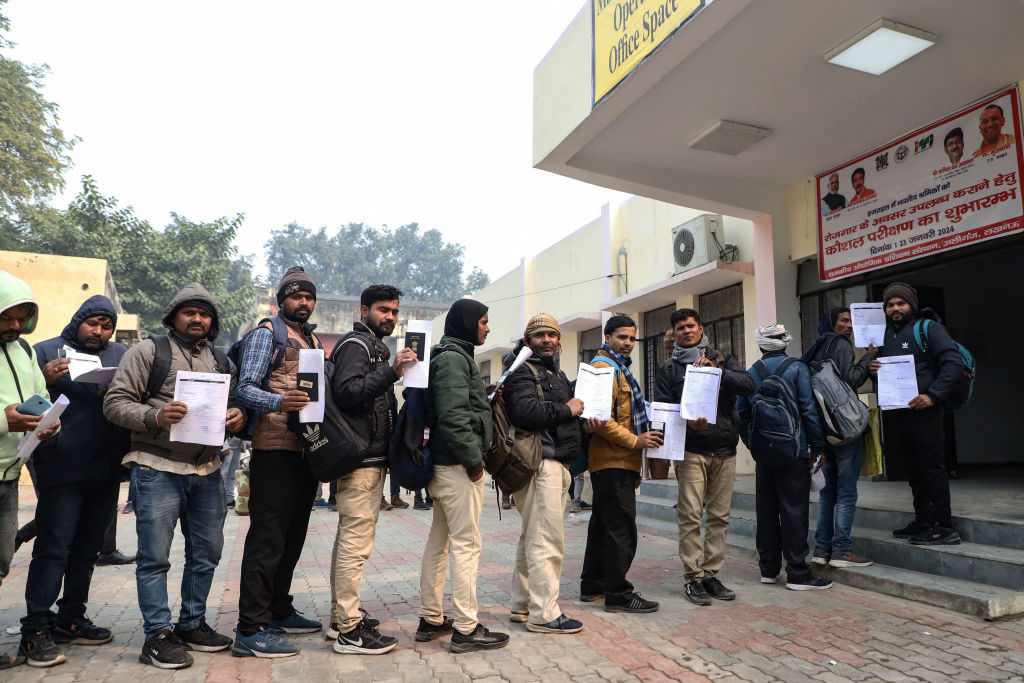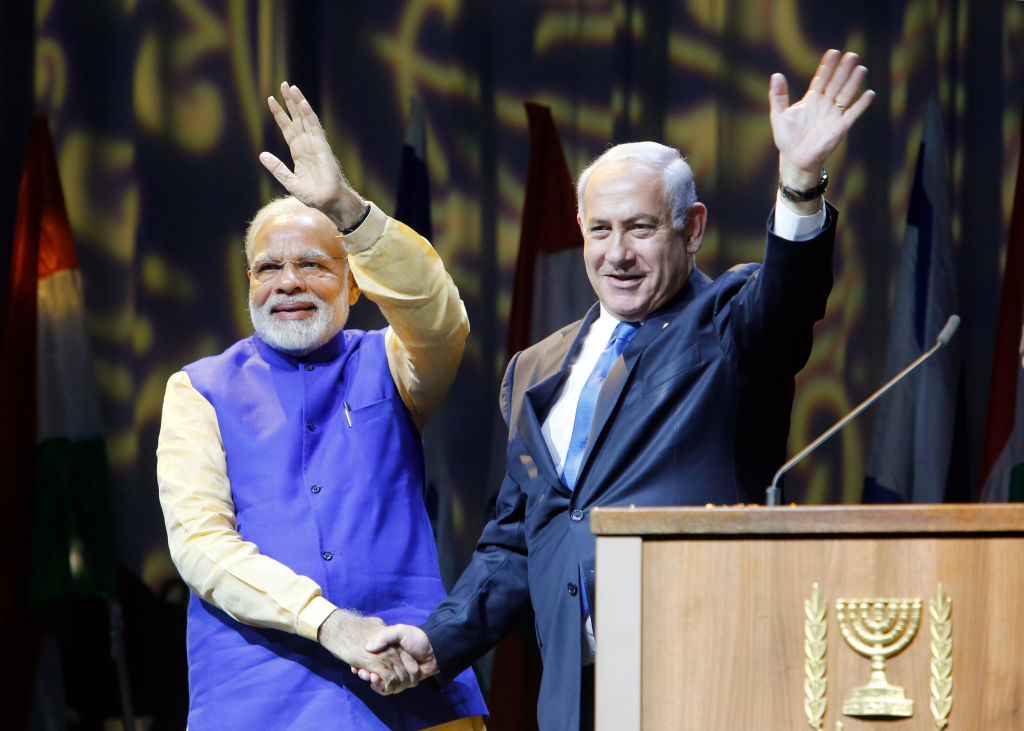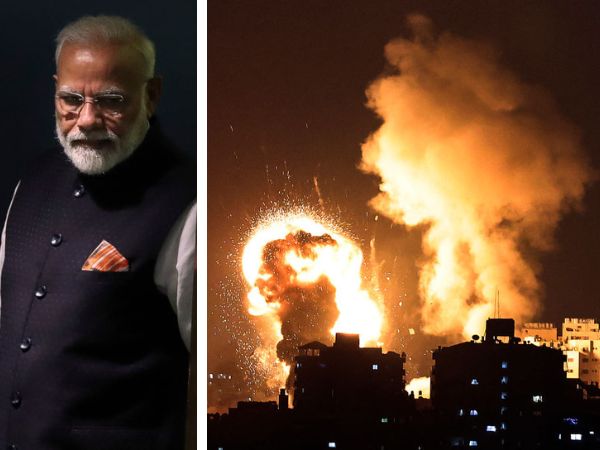- Saturday, April 27, 2024
While the Jewish state has sought to recruit labourers from India as the absence of adequate workers is hurting its construction sector, questions have been raised over the Indians’ safety.

By: Beauty Gupta
THE Israel-Hamas conflict has created significant repercussions, not only within the region but also globally. Amid the tension, Israel has faced a shortage of labour, particularly in its construction sector, due to the suspension of work permits for Palestinian labourers.
To address the challenge, the Jewish state has sought to recruit foreign workers, including a significant number from India.
Prime minister Benjamin Netanyahu requested his Indian counterpart Narendra Modi in a phone call in December last year to “advance” the date of arrival of workers from the South Asian nation. The move has stirred both economic and political discussions, highlighting the complexities involved in the conflict and its impact on labour dynamics.
The suspension of work permits for Palestinian labourers, who previously comprised a significant portion of Israel’s construction workforce, has resulted in a critical shortage. The potential economic repercussions for Israel could be significant.
Read: Indian from Kerala killed in anti-tank missile attack in north Israel

According to the Israeli finance ministry, the removal of Palestinian construction workers is resulting in an estimated monthly loss of three billion shekels (£643 million) and could eventually culminate in three per cent fall in the GDP due to the substantial debt of 400 billion (£86 billion) shekels owed by the building and housing sectors.
Read: Indian port workers won’t handle weapon cargoes to Israel for Gaza war
Furthermore, Israel’s conscription system, whereby citizens undergo military training and may be called upon for military service, has further depleted the available workforce, particularly amidst the current military operations in Gaza.
Israeli authorities have, therefore, expressed the need to find alternative sources of labour. Indian workers are being considered due to their skill sets and affordable services. Furthermore, the absence of diplomatic relationships with other South Asian nations such as Bangladesh and Pakistan limits Israel’s options for recruiting foreign labour.
Despite the dangers posed by working in a conflict zone, many Indian workers are drawn to employment opportunities in Israel due to the promise of significantly higher wages compared to what they could earn in India. The average salary in Israel for a construction worker is Rs 250,000-300,000 (£2,364-2,837) per month and this is much more than what a construction worker gets in India.

Moreover, the economic hardships and high unemployment rates in India are pushing individuals to seek better-paying jobs abroad, even if it means facing potential risks.
In May 2023, India and Israel had a linked agreement under the I2U2 (India, Israel, UAE, US) programme to allow 42,000 Indian workers to work in Israel.
Additionally, the Indian ministry of skill development and entrepreneurship entered into three agreements with Israel for the ‘Facilitation of Temporary Employment of Indian workers in Specific Labour Market Sectors (Construction and Care-giving) in the State of Israel’. Thus, government-to-government agreements have provided some level of confidence to the aspiring workers.
The northern Indian states of Haryana and Uttar Pradesh each have advertised 10,000 jobs for skilled labourers in Israel. As per the advertisement issued by the Haryana government, the Israeli recruiters seek carpenters, blacksmiths, tilers, plasterers, iron benders, and masons, among others, for a monthly salary of Rs 1.37 lakh (£1,296), more than five or six times what they would receive for the same work in India.
These initiatives align with broader efforts by the Indian government to facilitate the employment of Indian workers abroad and address domestic unemployment challenges. However, these actions have faced criticism from various quarters, particularly regarding the safety and protection of workers in conflict zones.
There are also reports that say that a section of officials have questioned the Indian government’s decision to send workers from the country as a replacement for Palestinian labourers. According to them, India would not be viewed as a neutral party if this happened and millions of Indians working in other parts of the Gulf could be targeted as a result.
Various activists and labour unions have alleged that there is no mention in the recruitment advertisement for the protection of individuals opting to work in conflict zones such as Israel. Notably, workers bound for conflict areas lack adequate labour protections as they are not required to register with Indian external affairs ministry’s ‘e-migrate’ portal. Despite reports indicating the deaths of approximately 80-100 foreign workers in Israel, the government has not yet included Israel in the Emigration Check Required (ECR) Scheme.
Labour organizations have appealed to the government not to dispatch Indian workers to Israel, following the death of a man from the southern Indian state of Kerala in a missile attack along Israel’s northern borders. Both the All-India Trade Union Congress (AITUC) and the Centre of Indian Trade Unions (CITU) have called on the government to annul any agreements with Israeli firms facilitating the deployment of Indian workers. Pat Nibin Maxwell, lost his life in a missile strike believed to have been orchestrated by the Shia Hezbollah faction while working on a farm near the Israel-Lebanon border.
The AITUC reiterated its demand for the federal government to refrain from indiscriminately sending young Indian men to Israel in a hasty attempt to address rising unemployment.
In navigating the complex landscape of the Israel-Hamas conflict and its impact on labour dynamics, it becomes imperative for stakeholders to prioritise the protection of workers, while also addressing broader economic and geopolitical considerations.
Beauty Gupta is a law student at National Law University, Delhi
![]()